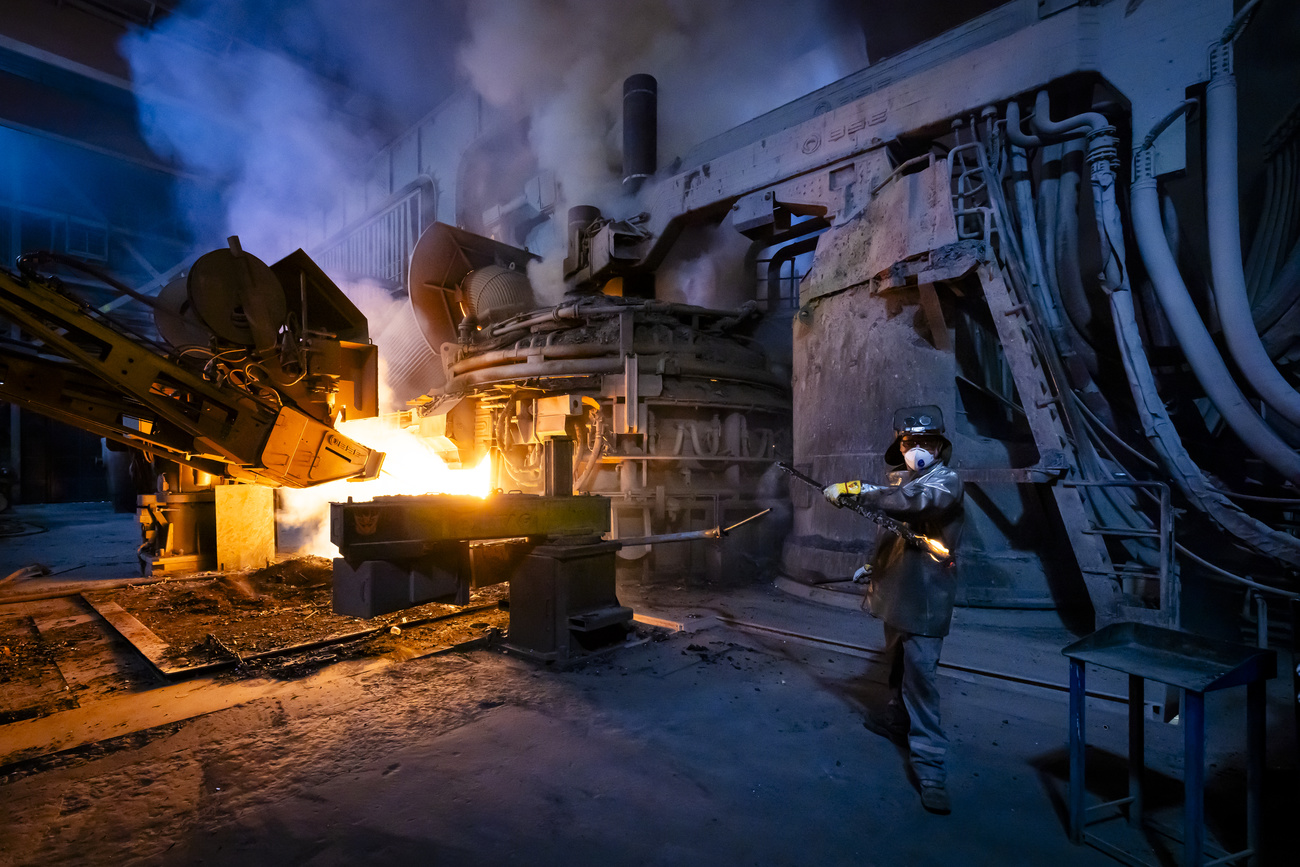
Switzerland Today
Dear Swiss Abroad
Our briefing today opens with an interview by Swiss public radio, RSI, with Foreign Minister Ignazio Cassis. You shouldn’t miss this interview, as the head of Swiss diplomacy is known to be the least talkative of the Swiss ministers when it comes to interviews with the media.
We will then talk about an unusual political alliance to help the Swiss steel industry, the Swiss population's perception of the LGBTQIA community and the Swiss federal government’s plummeting ranking in the fight against climate change.
Happy reading!
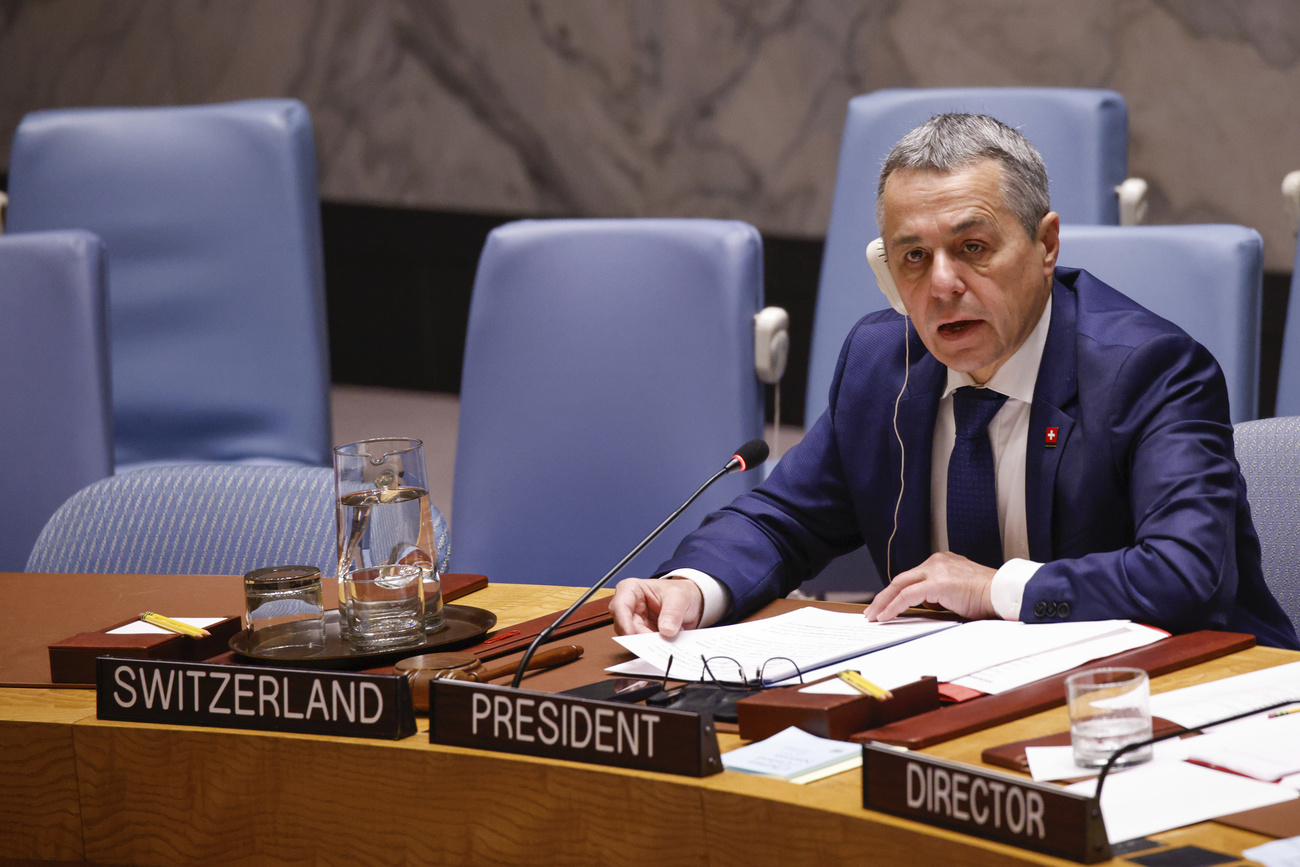
Swiss foreign minister speaks about UN challenges and a potential Trump administration
In an interview on the sidelines of a double session of the United Nations Security Council in New York, Swiss Foreign Minister Ignazio Cassis discussed, among other things, the potential impact of a second Donald Trump administration.
Asked by Swiss public radio, RSI, about the possibility of increased instability in the Middle East with Trump’s re-election, Cassis said: “Unfortunately, the last four years have been about a pandemic, a war in Ukraine, one in the Middle East, and one in Sudan. And this with a Biden government. It is certainly not just the US government that changes the world, but there will certainly be differences. We will see which ones.”
The foreign minister expressed his deep concerns: “These wars, in spite of all the efforts made by such an important system as the UN, cannot be mastered… What we are experiencing today is a Security Council and, in general, a UN that are not up to the expectations of the people of the world in creating peace and security.”
Cassis was scheduled to visit the University of Fribourg yesterday for a symposium with his Slovak counterpart, Juraj Blanar. However, the Swiss foreign ministry cancelled the visit, citing safety concerns for the speakers following a student organisation’s call to protest in favour of Palestine. The two ministers nonetheless met in Bern.
- The complete interview on Swiss public radio, RSIExternal link (In Italian)
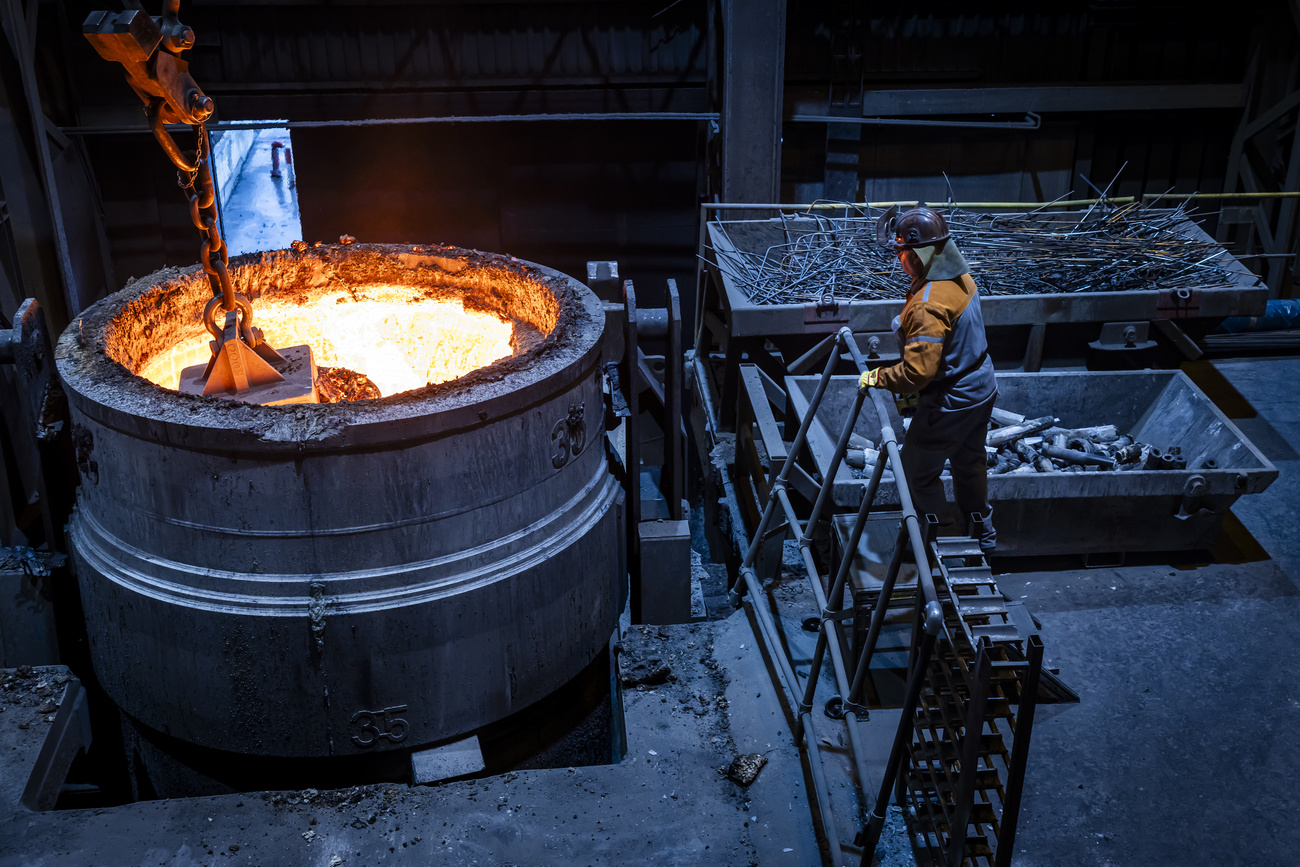
Swiss steel industry crisis sparks unusual political
alliance
The Swiss steel industry is in crisis, and the idea that federal authorities should intervene to support the sector is gaining traction in parliament. This goes against the opinion of the government and those wary of compromising Switzerland’s liberal economic model.
Last week, a committee of the Senate (upper chamber of parliament) approved transitional funding to assist struggling steel companies, such as the Solothurn-based Stahl Gerlafingen and Lucerne-based Swiss Steel Group.
Yesterday, the energy and environment commission of the House of Representatives (lower chamber) proposed, by 13 votes to 11, to exempt Swiss companies “of strategic importance” in steel and aluminum production from certain electricity taxes.
This decision was made possible by what the press calls an “alliance against nature” between the Social Democratic Party and the Swiss People’s Party. The government, however, maintains that it lacks sufficient legal grounds to intervene and argues that funds would be better directed towards partial unemployment schemes or decarbonisation programmes.
The proposal has also drawn criticism from some on the right, who claim it undermines Swiss liberalism and sets a dangerous precedent, potentially leading to further state intervention in other sectors.
- Swiss public television, RTSExternal link article (in French)

LGBTQIA acceptance in Switzerland: progress and challenges
The majority of the Swiss population has a positive attitude towards LGBTQIA people, but prejudice and intolerance persist in certain segments of society.
According to a survey conducted by the gfs.bern research institute on behalf of Amnesty International, Queeramnesty and other organisations including Pink Cross, positive views are prevalent, especially concerning values and individual freedoms.
However, when it comes to legal frameworks, institutional regulations, or infrastructure adjustments, openness decreases. The same applies to the everyday visibility of diverse lifestyles, with tolerance particularly lower for trans and intersex individuals.
While most of the population recognises the expression of one’s sexual orientation as a human right, half are uncomfortable, for instance, with two men kissing in public. “There is a discrepancy and contradiction between theoretical approval of certain values and practical acceptance in everyday life,” says Marc Schmid of Queeramnesty.
- Article by Swiss public television, SRFExternal link (in German)
- Article by Swiss public radio, RSIExternal link (in Italian)
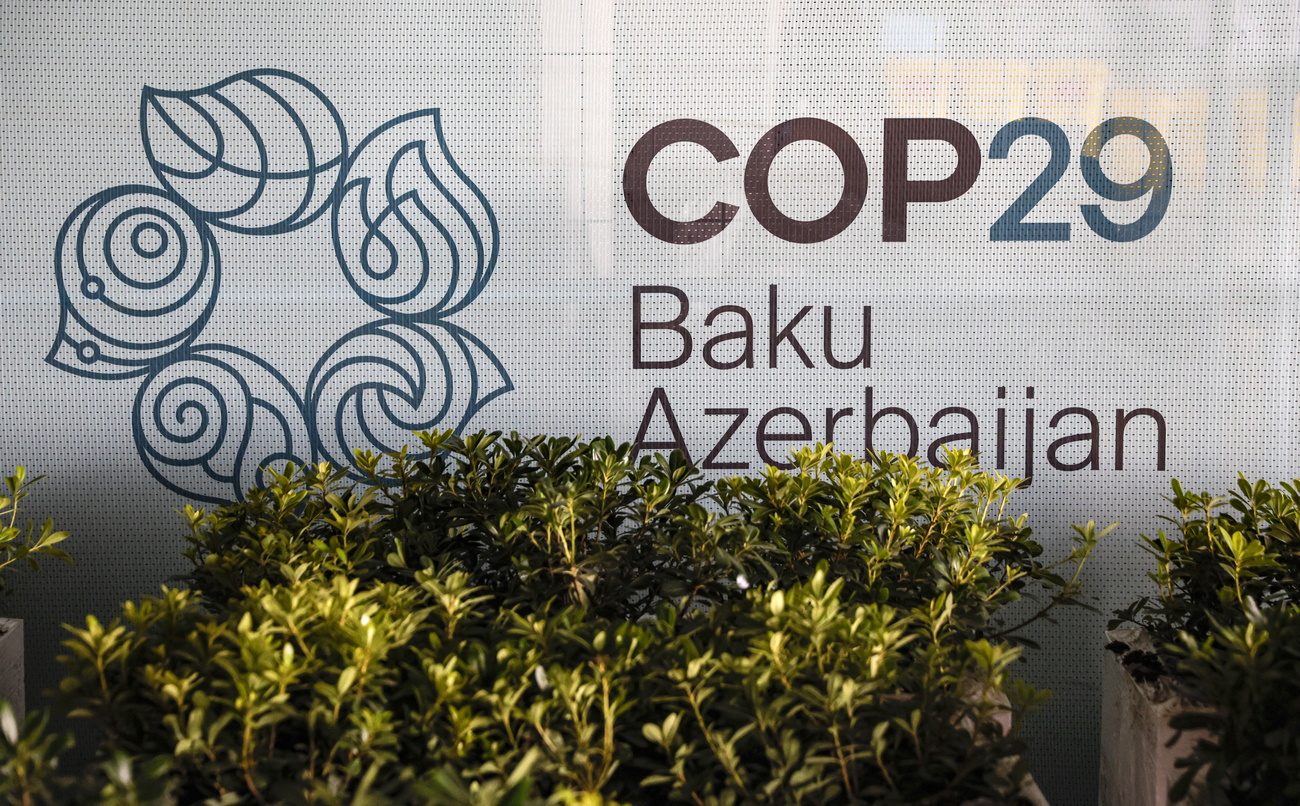
Switzerland’s commitment to combating climate change ranks poorly
Switzerland’s commitment to climate change mitigation was rated poorly in the Climate Change Performance Index (CCPI), where it ranked 33rd out of 63 countries, falling 12 places.
The annual ranking was released on the sidelines of the UN Climate Conference (COP29) in Baku, Azerbaijan, where Swiss Environment Minister Albert Rösti will be present tomorrow and thereafter.
Switzerland narrowly avoided a “low” overall score, earning an “average” ranking for greenhouse gas emissions and energy consumption. However, the country’s performance is undermined by slow progress in renewable energy development and inadequate climate policies, where it ranks 48th.
Established in 2005, the CCPI includes 63 countries and the European Union, collectively responsible for over 90% of global greenhouse gas emissions. Notably, no country surveyed met the necessary criteria to achieve the goal of limiting global warming to 1.5°C. Denmark, the Netherlands and the UK were the top performers, while the United Arab Emirates, Saudi Arabia and Iran ranked lowest.
- More details in our English article
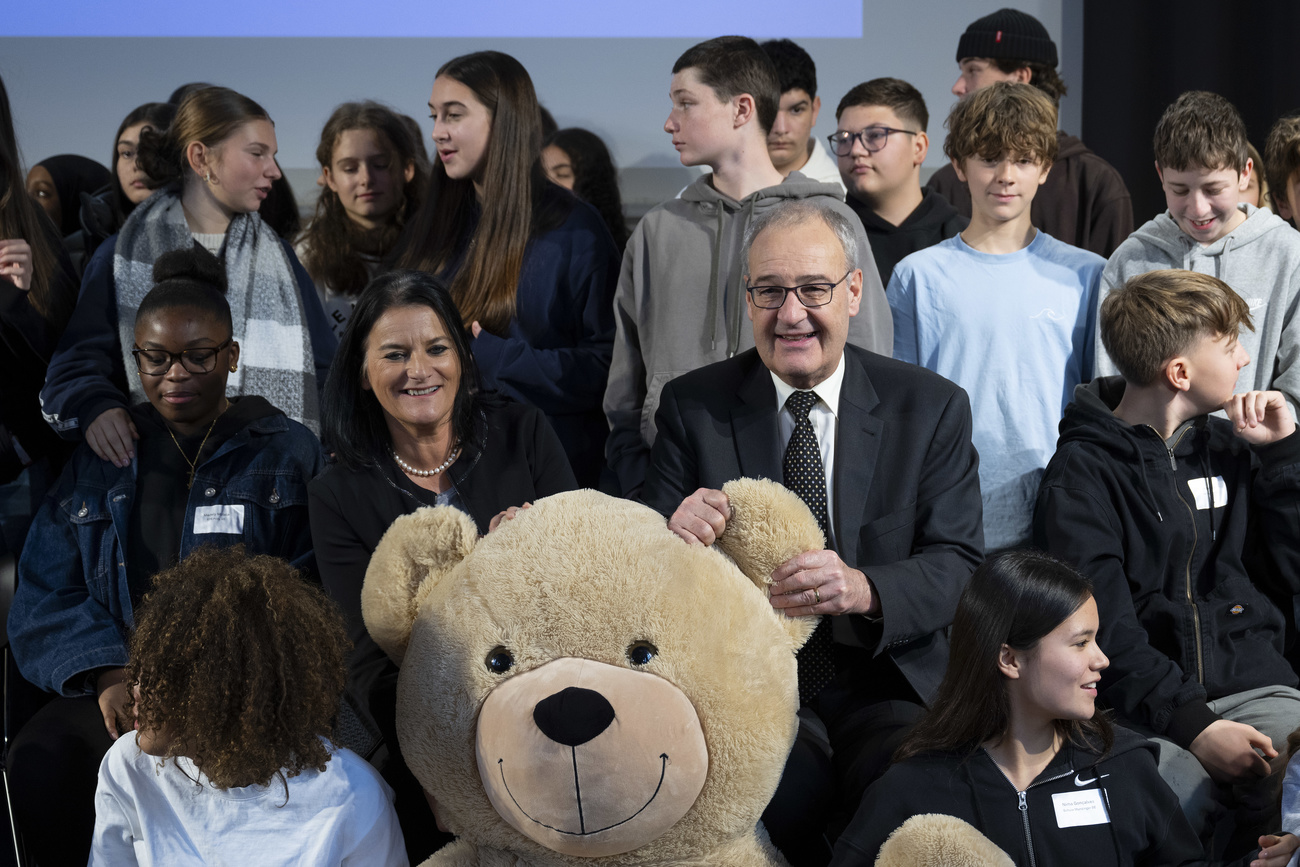
Photo of the day
Guy Parmelin’s commitment to posing with a stuffed bear appears greater than that shown by the pupils the economics minister met in Bern during the second national school exchange week.
The initiative allows thousands of boys and girls to meet and discuss with peers outside their language region.
Translated from Italian using DeepL/amva/sb

In compliance with the JTI standards
More: SWI swissinfo.ch certified by the Journalism Trust Initiative








